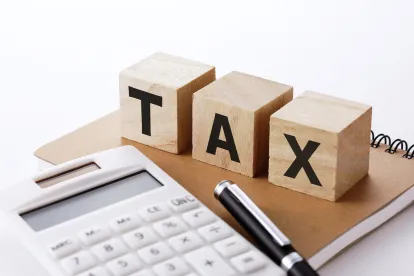On May 26, the Internal Revenue Service (“IRS”) and the U.S. Department of the Treasury issued final regulations (the “Final Regulations”) relaxing nonprofit donor disclosure requirements under section 6033[1] of the Internal Revenue Code (the “Code”) for many non-charitable tax-exempt organizations. Stated generally, section 6033 requires organizations exempt from taxation under section 501(a) (including section 527 political organizations) to file an annual information return with the IRS, such as a Form 990, Form 990-EZ, or Form 990-N. Section 6033 and the regulations thereunder grant the IRS discretionary authority to determine what information must be reported on such return in light of the efficient administration of the internal revenue laws.
The Final Regulations largely adhere to the proposed regulations issued in September 2019 (the “Proposed Regulations”) and provide that tax-exempt organizations other than section 501(c)(3) charitable organizations, such as section 501(c)(4) social welfare organizations and section 501(c)(6) trade associations, are no longer required to annually disclose the names and addresses of “substantial contributors” (those contributing $5,000 or more) on Schedule B of their Forms 990 or 990-EZ. The Final Regulations confirm, however, that all tax-exempt organizations must continue to report the amounts of contributions from each substantial contributor and maintain the names and addresses of such contributors in their books and records, should the IRS request this information at a later date. Moreover, the revised disclosure rule does not extend to section 501(c)(3) charitable organizations or section 527 political organizations, and such organizations must continue to disclose the names and addresses of substantial donors on annual information returns.
The IRS received 8,387 written comments on the Proposed Regulations, many of which expressed concerned over a potential surge in donor anonymity in the realm of campaign finance (section 501(c)(4) social welfare organizations and section 501(c)(6) trade associations, for example, are permitted to engage in political campaign activity and lobbying). In the preamble to the Final Regulations, the IRS rejects these concerns in favor of arguments rooted in donor privacy and relieving administrative burden, while emphasizing that “Congress has not authorized the IRS to enforce campaign finance laws.”
Commenters also focused on potential state-level repercussions of the revised disclosure rule, arguing that state taxing authorities may use Schedule B information shared by the IRS for purposes related to state tax administration and enforcement of state-level campaign finance and consumer protection law. The attorneys general of nineteen states and the District of Columbia submitted comments in opposition to the Proposed Regulations, while the attorneys general of eleven states submitted comments affirming they do not use Schedule B in their individual enforcement efforts.
In response to this state-level line of opposition, the IRS noted that states are not authorized to use returns or return information received from the IRS for the enforcement of state campaign finance or consumer protection laws, and that,“[t]o the extent that any state determines that the burdens of collecting and maintaining such information are justified by its own needs, such a state is free to require reporting of such information to the state and to maintain the information at the state’s own expense.”
Accordingly, tax-exempt organizations should anticipate states to take the IRS’s advice and adopt revised donor disclosure guidelines. New York and New Jersey have already taken action in the wake of the issuance of the Proposed Regulations, by requiring certain “charitable” organizations registered within each state to complete a Schedule B including names and addresses of donors. Due to the fact that state criteria for charitable organizations varies and does not necessarily adhere to federal criteria, organizations that do not qualify as section 501(c)(3) charitable organizations for federal tax purposes may still be obligated to prepare a comprehensive Schedule B and submit it to state tax administrations if a state so requires. Tax-exempt organizations may, therefore, experience the increased administrative burden of preparing different versions of Schedule B—one that explicitly identifies substantial contributors and one that does not—depending on the states in which the organizations operate.
The Final Regulations also make several minor changes that received little to no public comment, including amending the gross receipts threshold for filing a Form 990 or Form 990-EZ to $50,000 (in line with long-standing guidelines)[2] and clarifying that section 527 political organizations with gross receipts of $25,000 or more are generally required to file a Form 990 or Form 990-EZ.
[1] All references to “section” are to the Internal Revenue Code of 1986, as amended.
[2] I.R.S. Rev. Proc. 2011-15.




 />i
/>i

